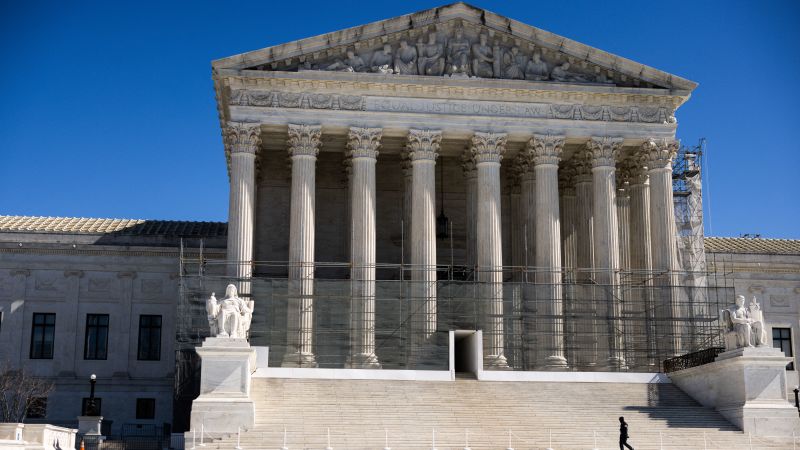
Supreme Court ruling on Alien Enemies Act raises new due process concerns for migrants
CNN
The Supreme Court ruling that permits President Donald Trump to use a centuries-old wartime authority to speed deportations is drawing sharp criticism from immigration experts who fear the decision could erode migrants’ due process rights to have their cases reviewed before they’re sent to a foreign prison.
The Supreme Court ruling that permits President Donald Trump to use a centuries-old wartime authority to speed deportations is drawing sharp criticism from immigration experts who fear the decision could erode migrants’ due process rights to have their cases reviewed before they’re sent to a foreign prison. The court’s 5-4 ruling Monday night requires those challenging Trump’s use of the Alien Enemies Act to rely on a complicated and rarely successful legal process known as habeas corpus, and to potentially file those claims in some of the most conservative federal courts in the nation. The lack of clarity around how people facing deportation under the 1798 law will be notified and whether they’ll be able to access a lawyer to help them navigate that process is prompting questions about whether Trump’s targets under the act will actually receive the due process the Supreme Court majority promised in its unsigned opinion. “It’s hard enough for fluent English speakers to do this,” said Elora Mukherjee, director of the Immigrants’ Rights Clinic at Columbia Law School. “These are extremely significant barriers.” Attorney General Pam Bondi said in an interview with Fox News on Tuesday that winning habeas challenges wouldn’t be a heavy lift for the Justice Department. “It will be a much faster hearing,” Bondi said. “It will be a much smoother, simpler hearing and these people will be deported.”

Rep. Marjorie Taylor Greene made clear she is at odds with the president and other Republicans who support an aggressive posture against Iran, acknowledging that there’s a “very big divide” in the party over the issue and that her position opposing foreign wars is becoming “more popular” among the base.





















 Run 3 Space | Play Space Running Game
Run 3 Space | Play Space Running Game Traffic Jam 3D | Online Racing Game
Traffic Jam 3D | Online Racing Game Duck Hunt | Play Old Classic Game
Duck Hunt | Play Old Classic Game










